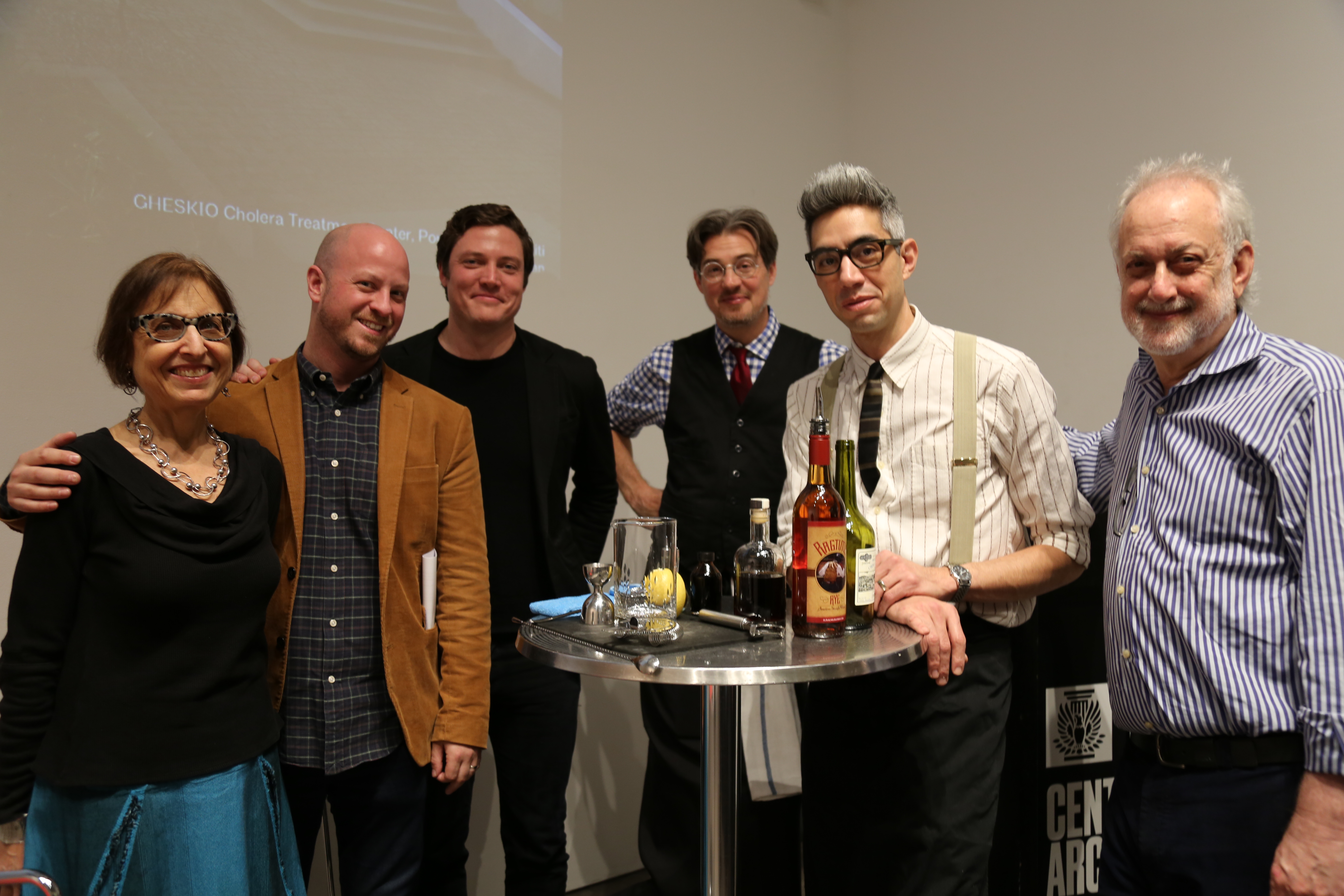by: Casey Samulski
On 11.18.16, what was originally supposed to be a straightforward discussion between Michael Sorkin, principal of Michael Sorkin Studio, and Michael Murphy, co-founder and executive director of MASS Design Group, was transformed (at their suggestion) into a hothouse of political debate and dissension. They were joined by a sprawling crowd (even the overflow room did not have enough seats for all) to discuss questions facing architects in light of the recent election results, and the initial statement issued by AIA National CEO/EVP Robert Ivy, FAIA, on behalf of AIA’s 89,000 members, that the organization was “committed to working with” President-elect Donald Trump on the infrastructure promises he has made.
Murphy began by chronicling Ivy’s statement, the subsequent backlash, and the long, complicated history architecture has had with political questions. He quoted other chapters’ (including AIA New York’s) and members’ public reactions, which derided Ivy’s statement as “a missed opportunity” and a “kiss-ass mealy-mouthed” response to the president-elect.
Murphy then posed the argument that the choice between “social justice practice” or “architecture practice” is, itself, a false choice. “The equivocating we may have done between ethics and something neutral is not neutral at all,” he warned. “Our challenge is to determine which decisions we are making that are helping and which are hurting.”
He proceeded to publicly call out Patrik Schumacher of Zaha Hadid Architects for his call to “stop political correctness in architecture,” and his statements suggesting that public housing should be scrapped. “This is dangerous theoretical work,” Murphy said, before pivoting to recent history, and, in particular, the effort in the 1970s to de-politicize the work of Nazi architects like Albert Speer and others. With this context as backdrop, Murphy challenged the audience to consider whether this is the kind of theoretical project they would wish to embark upon again. What are the consequences of such a project? “The notion of making an apolitical project,” he concluded, “is potentially an act of violence itself.”
Sorkin’s address was similarly charged, as he took time to read from his manifesto that has circulated in response to Ivy’s letter. Rather than examine the present from the perspective of the past, Sorkin raised questions about the future of architectural practice under a Trump presidency, specifically questions of affordable housing, environmental peril, sustainability, and the risks of prejudice.
Sorkin noted in particular Trump’s history as a builder and manager of less-than-reputable projects, along with his racial discrimination through housing, stiffing of architects and contractors, labor abuses, and his emphasis on projects of “low social value,” like casinos. He painted a picture of a scandal-ridden developer who has represented some of the industry’s worst abuses, and then questioned what we should expect of such a man’s infrastructure:
How much of that half-trillion Trump proposes to spend will go to public transit? How much to reconfiguring our imperiled coastlines? How much to assuring that our insane production and disposal of waste enters a circular system of conservation and re-use? And how much will be invested in fair wages, good work, and environmentally just material extraction, production, and use?
These, he argued, are the ethical imperatives that must be considered by any architect wishing to entertain Trump’s ideas – a clear break with Ivy’s positivity.
After both received several enthusiastic ovations, Murphy and Sorkin asked four other architects onto the stage – Priyanka Shah of Grimshaw Architects; Quilian Riano of DSGNAGNC; Mark Gardner, AIA, LEED AP, of Jaklitsch/Gardner Architects; and Jonathan Kirschenfeld, AIA, of Jonathan Kirschenfeld Architect – and announced their joint formation of the Progressive Design Network, with the following evening serving as its first official meeting. They invited the audience, including AIA members, to not only join the alliance, but to begin debating points of action, leading to a spirited and sometimes confrontational open forum. Calls for Ivy’s ouster were frequent, along with questions about complicity with power and how best to resist any regressive projects Trump might try to enact.
Many of these questions still have fuzzy answers at best, but Shah suggested the practical step of membership in the Architecture Lobby to advocate on behalf of workers, a group she warned would see little support under a Trump presidency. She also listed some simple, achievable actions for anyone to take regardless of their career: “Pressure your local representatives. Get on the inside if you can. Buy subscriptions to media outlets. We need good media to remain alive and viable. Give donations to non-profits. Support the people who know how to do what we don’t.” Riano also chimed in to reiterate Sorkin’s point on infrastructure, saying, “Infrastructure is not necessarily a good. Infrastructure has been used to oppress minorities before. The wall [on the U.S.-Mexican border] is infrastructure.”
While the conversation continued well beyond the official end of the evening, Sorkin marked its finish by invoking the promise of an earlier president – FDR’s New Deal – and with it a reminder of what infrastructure had once been: public work serving “a constituency of publics [whose] ideas should determine the direction and good of our society.”
Editor’s Note: On 11.14.16, Robert Ivy, FAIA, and 2016 AIA President, Russ Davidson, FAIA, posted a video with a joint statement saying that the original memo was “tone deaf” and “resulted in hurt and anger by too many people.” The AIA New York Board of Directors also issued a statement rejecting AIA National’s message.
Event: Architecture Is Never Neutral: Michael Murphy and Michael Sorkin on Politics, Space, and Justice
Location: Center for Architecture, 11.18.16
Speakers: Michael Murphy, Co-founder and Executive Director, MASS Design Group; Michael Sorkin, Principal, Michael Sorkin Studio; Priyanka Shah, Grimshaw Architects; Quilian Riano, DSGNAGNC; Mark Gardner, AIA, LEED AP, Jaklitsch/Gardner Architects; and Jonathan Kirschenfeld, AIA, Jonathan Kirschenfeld Architect
Organized by: AIANY Architectural Dialogue Committee
Sponsored by: Florim









